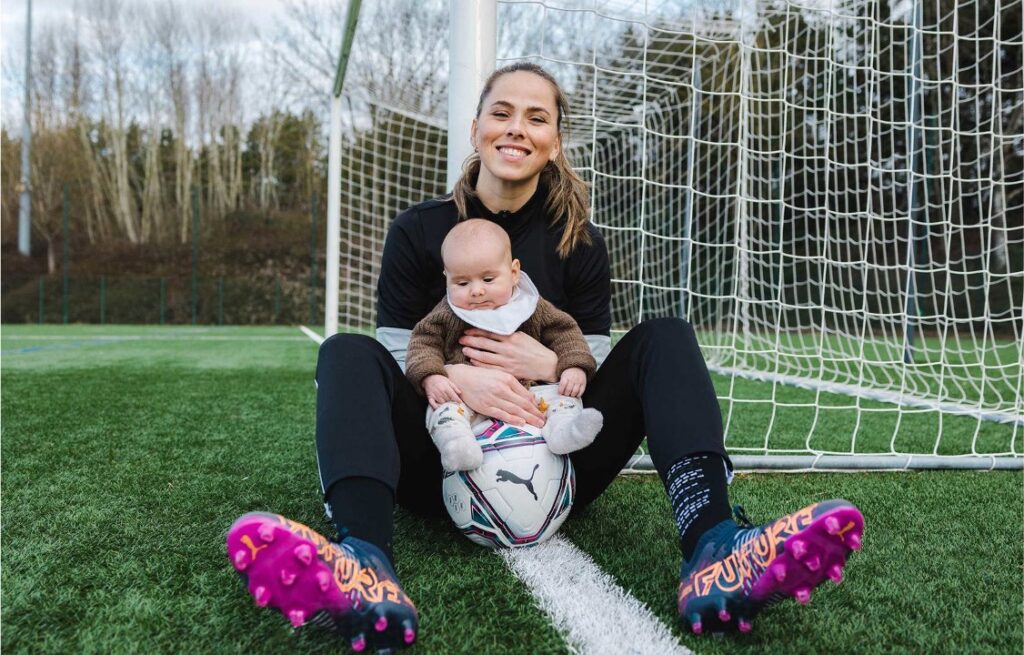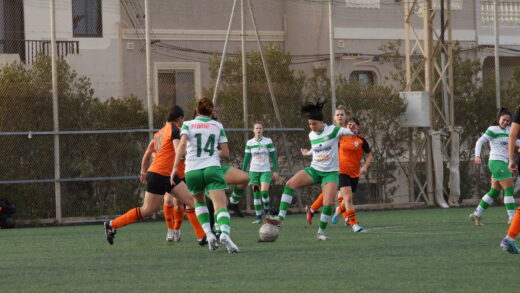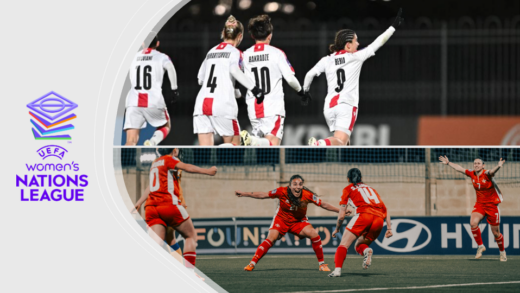Maternity clauses grabbed the spotlight in the opening of season 2023/24. In light of the forward steps in this subject, The Sporting Fan conducted interviews with players who had children across the last 24 years to understand their path and their view on the development needed to support playing parents to stay in the game, whether professionally contracted or not.
The Provisions & Their Applicability
The Malta FA Executive Board opened the first meeting of the 2023/24 season with an approval for provisions for women who are under professional football contracts. These give professional female players entitlement to maternity leave and legal protection from termination of their contract by the club because of their pregnancy. It also includes other rights related to access of sporting services during pregnancy and breast-feeding facilities.
This is separate from the minimum standards framework that UEFA brought out for national teams, which also addresses maternal factors (among other things), but does not cater for domestic league games and the respective training sessions.
Efforts by The Sporting Fan to obtain the number of professionally contracted players suggest that there is approximately 5% of the playing population contracted professionally. Few are solely employed to play football in the local Assikura Women’s League and Assikura Women’s Youth League, with many undertaking other duties within the respective clubs. Thus, while increasing, the idea of being fully dedicated to playing football is still somewhat of a rare possibility locally.
Considering these numbers, the approval of provisions currently caters for a small number of active players, but shows an enthusiasm by the Executive Board toward laying a foundation for a future where more players become contracted professionally.
On the other hand, having a child is not a mutually exclusive thing to being a professional footballer. Considering this, The Sporting Fan spoke to a number of female footballers who went through their pregnancy and continued to bring up the child while resuming their playing career.
The players spoken to had children in various years, from the early 2000s all the way to the recent past. This was done with the intention of also putting a spotlight on the progress made over the years and areas needing attention. None of the players interviewed are full-time footballers because, to the author’s knowledge, none of the players currently contracted on a professional basis have children and so that perspective was not possible to obtain in a way that is relevant to the domestic leagues in Malta.
Training During & On Return From Pregnancy
Interviews revealed that recent mothers kept training in some form or other once pregnant, until around seven months into the pregnancy. On the other hand, those who had their children in the 2000s were more likely to stop immediately once pregnant.
However, recent parents said that they kept training based on their own volition, with little guidance from the technical staff, who appeared to be untrained on how to handle a pregnant footballer.
One mother said, “I tried to keep going to training while pregnant, but it was like no one knew what I could or could not do. Of course, I knew I could not do everything that I was doing before, but I knew that there could be sessions where I was doing things on the side. The problem was that there was no training plan for me, so it got awkward and uncomfortable. Instead, I was researching things that I could do myself to know how I could train, what I could not do and when I could do it.”
In another case the player said that she was encouraged by the club coach. However, the player echoed her fellow peer, in that many were hesitant to offer any real practical guidance. At the time, requests to be given a separate plan went unanswered even at national team level, though one notes that there have been personnel changes since then.
As expected, players varied in their return periods following the birth, since this depends on any complications that arise during the pregnancy, as well as the birth itself. Among those spoken to, the return varied between as early as six weeks to around three months after.
In terms of returning to physical fitness, the players noted that the return was often as unguided as the pregnancy. “I gained a lot of weight during my pregnancies. However, it was up to me to get myself fit. There was no awareness of what training I should be doing (if any) during my pregnancy, and certainly nothing after,” said one of the older parents.
Probing more recent mothers revealed little improvement. One player said, “I asked for a specific training plan to get back into fitness from multiple people. It seemed that the technical staff at the time had no training on this.”
In some cases, it was actually rather the opposite, “On my return, I was discouraged from pushing myself, against the advice of medical personnel who told me I needed to push more to get to the necessary level.”
All these occurrences reveal that none of these players found knowledgeable technical staff to guide them on their return, at both club and national team level. Even more worrying is the fact that a player noted that she continues to see this lack of know-how, even with current coaches.
She remarked, “It is evident that from the multiple coaches I’ve had, none of them seemed to be trained in how to handle a player who is pregnant or coming back from their pregnancy. This is perhaps the biggest issue because you want to be fit and in the best possible shape, to get back to playing as quickly as possible, while doing the right thing for the baby and your body. However, not having anyone who can guide you through that process, when you are an athlete, is a struggle. That was the strangest thing for me, that no one seemed to be able to simply have a plan of what I needed to do to get back to fitness.”
Additionally, a common thread was mentioned by players that peers abroad are getting the necessary support. This sheds light on an area where foreign countries may be sprinting forward, and that effort is needed to help local players to stay on par.
On Support Structures Following The Return
The psychological battle of the return itself and juggling the parenting responsibility amid footballing commitments, was also a hot topic of discussion and experiences varied significantly.
From the conversations had, the importance of support and encouragement from a player’s partner and family is imperative. However, discussions also revealed that the absence of support structures from football clubs and authorities, means that family support is often the only option that a player has. The combined lack of these appears to be a major culprit for a high dropout rate when a player approaches the decision to start a family.
One of the older parents revealed that she was urged to come back, when in fact she had assumed that her footballing days were over. However, she was encouraged to continue by her partner and the national team coach at the time.
Asked to explain the day-to-day scenario of the early years, she explained, “I was like a guest player with the club, going only to the matches essentially and training with the national team. However, it was a real challenge to juggle everything after having the child, even though I had the support of my parents and my partner.” The player revealed a constant mental fight, “There were many moments when I would be thinking to myself, what am I doing? Leaving my children with my parents and there’s always this hassle involved.”
Another more recent mother echoed the importance of support from the partner and family, “He is also involved in the game, so juggling our schedules is tricky but together with him and the support of our parents we found a way to ensure that the baby would be taken care of during the hours I was at training or at matches, if he had his commitments at the same time.”
However, in this case club support left much to be desired, “I was looking forward to getting back to training following the pregnancy, but it hurt that after having been with the club for a long time I was not even contacted by the committee or the coach.”
The player noted that the club showing interest in her return would have gone a long way, “At this point since the majority are not professional, we do these sacrifices because we love the sport. However, not hearing a word of interest in having you back, sort of exacerbates everything that you are already dealing with. A few words would have been great to feel that you are still a part of the squad.”

The above continues to show that currently the support is solely received from family, which even if present, can become a lot if needed daily. The subject of late training times as well as late weekday-matches was also brought up but there was disagreement between the different players interviewed. In some cases, the partner would take care of putting the child to bed. However, should the partner not be available to do so, then the reality becomes different.
Additionally, it is not difficult to see how with the introduction of professional players who are training full-time, and the fact that amateur players are training at a higher intensity and more regularly, the level of the women’s game is continuously increasing. It means that the idea of walking into a match without having trained close to every single day and at a certain level of intensity, is no longer a reality that works.
Looking at the impact that this is having on the football community, another player said, “In reality, it (the pregnancy term and return) would generally take a player out in a similar way to having a long-term injury, but it doesn’t mean that the player cannot come back.”
She suggested that introducing formalised support systems may also push a cultural shift, “I think some of it ties back to the cultural issues, that a number of players feel that once they are getting married or preparing to start a family, they feel that their time as a footballer is up. We have lost a number of good players in this way, when perhaps they would still be playing if they had more formalised support systems.”
Once more, the discrepancy to the support received by foreign peers was brought into discussion, “Currently, the support system to be able to handle everything is my family, because, unlike clubs abroad, there is no nanny or dedicated childcare during training or matchdays. Although I’ve always had the full support of my family, sometimes you wonder why it is so in Malta, where other countries have found solutions.”
Fighting Cultural Stigma
Discussions with various players also revealed a common thread that a cultural stigma still exists, which pressures players into stopping from playing football once they have a child. All players spoken to mentioned that they faced this pressure and that they are aware of many others who have too, whether they had children in the near or more distant past.
One player said, “Culturally I think there is still the idea that once a player has a child then that becomes their focus and it’s like everyone assumes that they will stop playing. This is something we still have to fight against.”
In fact, players spoken to experienced this scenario, where club officials, fellow players and coaches, assumed that their footballing journey ended with the pregnancy. Alarmingly, this is something still faced by those becoming parents only just recently.
Exterior to the football community, some players received remarks that playing football is an indulgence especially because, as noted above, most female footballers in Malta are playing on a non-professional basis. The hammer-blows are the remarks that suggest that this makes them less responsible mothers. This means that on top of trying to find a way to return to physical fitness with little support, they are also fighting against the unfortunately still existent cultural stigma that puts the burden of child-rearing squarely on the mother’s shoulders.
In relation to this, one player explained that she has come across a number of women who feel that an hour of sport (whatever that may be) is not their right amid other family duties. The player revealed that she often reverses the conversation to encourage some form of physical exercise each day because of the well-known positive effects both on the body and mental well-being.
She explained, “Considering the difficulties I went through during my pregnancy, that hour of training was crucial for my mental wellbeing. Today, the time spent each day training with the team keeps me healthy physically and mentally. Perhaps if I am frustrated about something at work, or something is nagging me, training allows me to channel it into something positive. I really believe that am actually able to do the best possible job once I am home with my child, because I make certain to dedicate a part of my day to keeping myself healthy too.”
Do you welcome the provisions and what adjacent investment is needed?
Considering that the provisions approved by the board are the first sign of addressing maternity, players were asked for their opinion on the provisions. One notes that none of these players have a professional contract, and so will not be supported by the provisions. They were also asked what they think the next step should be.
One player best summed up the general consensus among players interviewed, “It’s good to have it written, even if it is something for the future. Since becoming a parent, I look at the young players coming up and my focus has almost become more toward ensuring that they have it better than we did. So, I encourage more effort to improve these things, get sponsorships and investment so that they can get to a state where these provisions apply, but that also they have a future in the sport.”
The player noted that widespread education of the specificities of the female body is needed, “It is not only maternity, but even how to handle a player who is going through their period. It is important to have coaches aware of what that player can do, perhaps it can be an alternative set of exercises to what they usually do.” It is not unheard of that coaches have been completely oblivious to how to handle such matters.
Specific to pregnancy, another player observed, “There were players locally who came back from their pregnancy and like me they had to figure it out themselves, which is unlikely to be the most efficient and effective solution. It means we lose these players for a longer period than we should and possibly even forever, which ultimately is to the detriment of the club and the national team. Having physical trainers, technical coaches and physios properly trained on the subject would go a long way to ensure that we do not lose players and that as a new mum you feel supported in your return.”
In most cases mentioned above, there was not a specialised fitness coach involved in the technical staff, so the responsibility fell on the tactical football coach. One remarks that the recruitment of specialised fitness coaches has been on the rise in domestically only very recently. However, speaking with a number of these specialised fitness coaches also revealed variations in how deeply this topic was covered in their studies. This seemed to depend on a mix of where and on what the coaches did their specialisation, with some more knowledgeable than others depending on their experience. In this regard, the call for common training courses on the topic is still as relevant as ever.
Besides physical training, players noted the importance of mental support systems in light of the cultural stigma and ongoing change that the person goes through, “I am well aware that the life of a footballer becomes a part of your lifestyle. I know of players who stopped because of these difficulties and not because in reality they wanted to or they felt it was time to. There’s a mental battle there which is not easy. You can lose the sense of who you are in a way or at least a big part of who you have been since you were a child. When you think that with a little more support they would not have to go through that, it is quite sad and it is easy to understand that more should be done, for their good and ultimately for the good of the game in Malta.”
Once the pregnancy passes, childcare support is one of the factors needing consideration. One of the older players said, “I used to joke with players back then that once I retired I would come to training simply to take care of the children’s players until they trained.” She noted that at the time she said it as a joke, because though she knew it was necessary, back then it was a remote possibility.
However, she noted that something like that would be extremely important to encourage new playing parents to stay in the sport, “It would go a long way to have some form of child-carer that gathered the children while the players trained. Having raised my own children while playing, I am well aware of the difficulties and I’ve seen other fellow teammates trying to juggle everything. Sometimes they had no option but to bring them with them to training. There were cases where the child would not stop crying and the player ended up having to leave the session with tears in her eyes because she felt guilty that she brought the child, but she had no one to keep the child on the day. Having some form of childcare support would go a long way. Unfortunately, I can mention a long list of players who left the sport as soon as they had children.”
While it is easy to consider this to be a problem specific to women’s football, one player noted that this lack of childcare support is something that affects all players. She said, “It is also a problem that male footballers have, not just women. In some cases, maybe it gets more hidden because the mum takes care of the child, but it does not mean it does not also exist. In this regard, if a club or association invests in these things it is something that would help all of its players and staff, not solely the women’s team.”
Speaking of facilities specific to maternity, it transpired that in some cases the women’s teams don’t even have a dressing room or dedicated restrooms. Considering this, the provisions’ statement of having breast-feeding facilities is an important one that should be addressed alongside the basic requirement of having dressing rooms and properly equipped restrooms.
Were you consulted in preparation of these approvals?
All players were asked one final question. Had they been consulted in the process of approval of these provisions? The answer was a unanimous no.
As noted above, the approved provisions set an important foundation for those who are already contracted on a professional basis and with the positive belief that more players will be professionally contracted as the women’s game grows in Malta too.
However, from these discussions it is evident that locally there is a lot that can be done to support all of the active players until then. It is also clear that the responsibility does not lie with one entity but requires some teamwork from all involved in the sport.
The Sporting Fan thanks all who were willing to share their story and those who provided any insight to be able to bring you this special feature.
Thank you for reading. Please consider sharing it with a friend who you think needs to read this.
Lead Image: Lara Schembri
Stay up to date by following The Sporting Fan on social media: Instagram ~ Facebook ~ X



